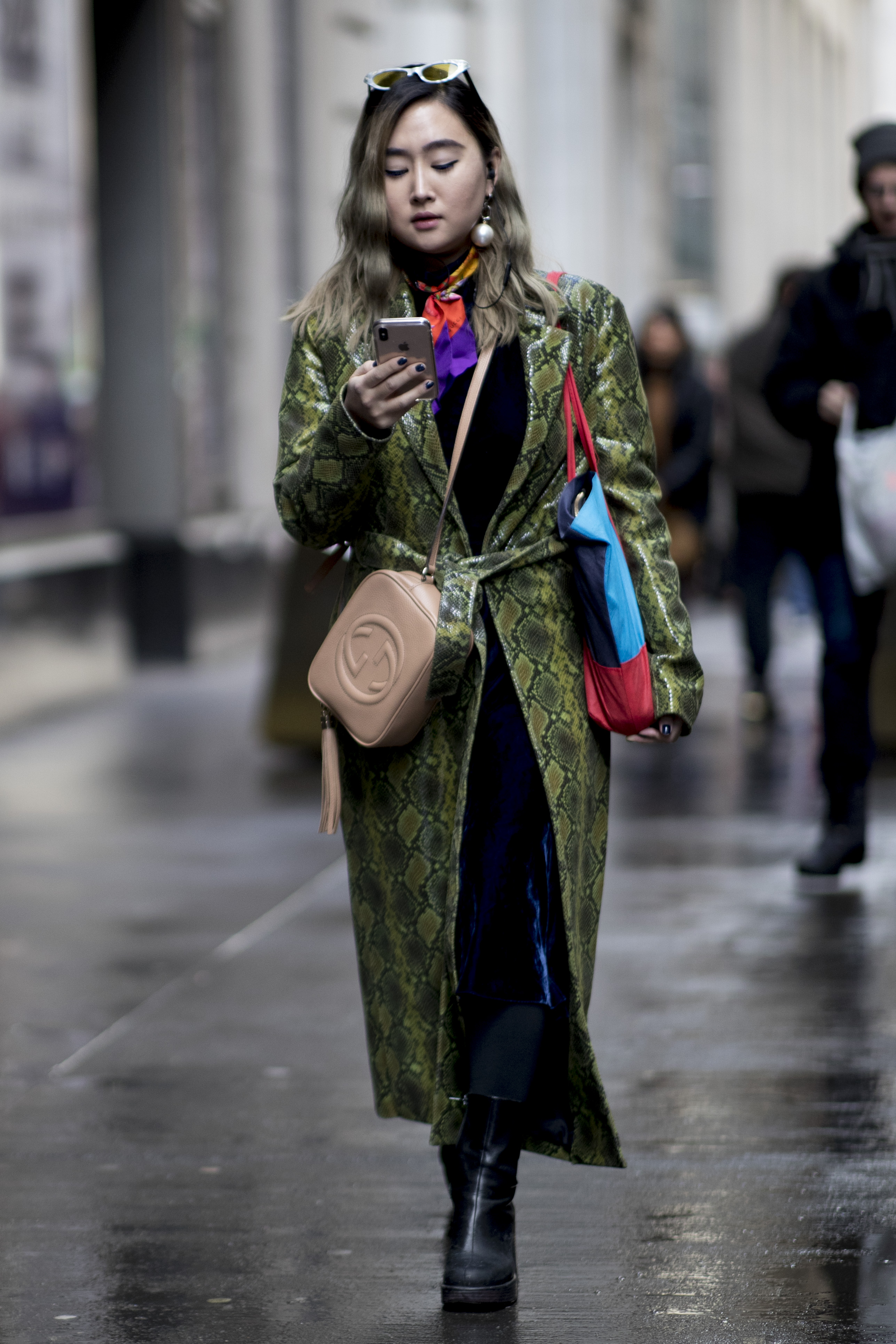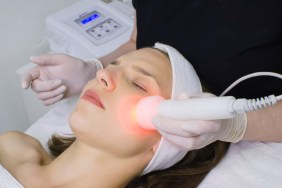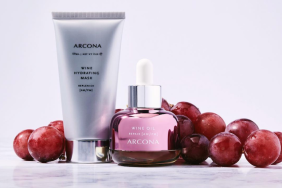
There’s no way to sugarcoat it: Bit by bit, the world is becoming an increasingly more toxic place. While you might know many of the obvious manifestations of that — oceans, landfills and the digestive tracts of living organisms being filled with plastic, for example — there are many less obvious manifestations that are affecting most of us on a daily basis. Environmental toxins are everywhere, including in the air we breathe, the food we eat and the other pervasive thing that fills our day: the screens we stare at.
You may have noticed a deluge of new products hitting beauty aisles claiming to protect against environmental aggressors, many of which specifically call out infrared and blue light. So, what are these lights and should we be worried about them?
What Is Infrared Light?
On the most basic level, there’s a spectrum of light with infrared on one end of that spectrum and ultraviolet light on the other. Ultraviolet energy has long been known to cause skin cancer and skin aging, which is why dermatologists and beauty experts consistently stress the importance of daily UVA (the aging rays) and UVB (the burning rays) protection. But the other end of the light spectrum isn’t great, either.
“More and more data keeps coming out supporting the role infrared energy plays in causing skin damage,” says Dr. Hal Weitzbuch, M.D., M.S., F.A.A.D., Calabasas Dermatology Center Medical Director. This energy comes from the heat produced by things like ovens, laptops, blow driers and gel manicures.
The Effect of Blue Light on Skin
Between the two ends of this spectrum are visible lights including the buzzy blue light, which is emitted from computer and phone screens. “While skin cancer is not believed to be associated with high blue light levels, this light has been shown to damage the skin,” says Dr. Weitzbuch.
But unlike with UVA and UVB rays, it’s not all bad.
In fact, it’s important to note that not all experts agree that the studies on infrared light are compelling enough. “Infrared radiation is typically not dangerous,” says dermatologist Dennis Gross. “We are immersed in it every day.” Blue light, says Gross, may actually benefit our skin when used at the right strength.
“The biggest and most important difference in blue light being harmful versus therapeutic is the wavelengths of each blue light,” says Gross. “Blue light ranges from 380-500 nanometers. Potentially harmful blue light that is emitted from technology is wavelengths lesser than 415 nanometers; the blue light emitted from devices like the SpectraLite FaceWare Pro is exactly 415 nanometers, which kills bacteria, making it a powerful tool for clearing up skin.”
But that’s not to say you should bathe your skin in your adjusted cell phone light nightly. Dermatologist Sejal Shah says that blue light exposure at night can disrupt sleep — which messes with your skin in other ways. “There are a number of important physiological processes that occur during sleep that affect the whole body, including the skin. There is also evidence that blue light can be damaging to eyes and vision,” says Dr. Shah. “The exact effects on the skin are still not fully understood, but some small studies suggest that too much exposure can induce free radical damage, thereby contributing to photo-aging. It has also been shown to stimulate pigment production.”
Unfortunately, we still don’t know the sweet spot when it comes to how much screen time is OK.
“It might be difficult to tell right away, but if you’re exposed to too much blue light you will likely eventually start to see premature signs of aging such as fine lines and wrinkles and hyperpigmentation,” says Gross. ” If you’re constantly using devices such as computers and cell phones and notice that your eyes feel strained, that is a sign that you have had too much exposure. Just spending two consecutive hours on a device can cause eyestrain and fatigue.”
How to Protect Against Blue Light
There is clearly a lot more research that needs to be done on the topic, but let’s not wait till our worst fears are confirmed to start taking action. “While there’s still no definitive proof, incorporating antioxidants into your skin care regimen is always a good safeguard against free radicals. I would also recommend our C + Collagen Brighten & Firm Vitamin C Serum, which is power-packed to fight free radicals while improving the appearance of fine lines, wrinkles, dark spots and uneven texture,” says Gross. There are also protective glasses with coated lenses that filter out harmful blue light. Gross recommends taking frequent breaks from your devices and changing your digital device background from white to a cool gray.
“Lastly, physical sunscreens, while technically not meant to predict against blue light, can also form a physical barrier and block blue light,” says Shah.
[ Next: Anti-Pollution Skin Care Is the Beauty Breakthrough You Never Knew You Needed ]







